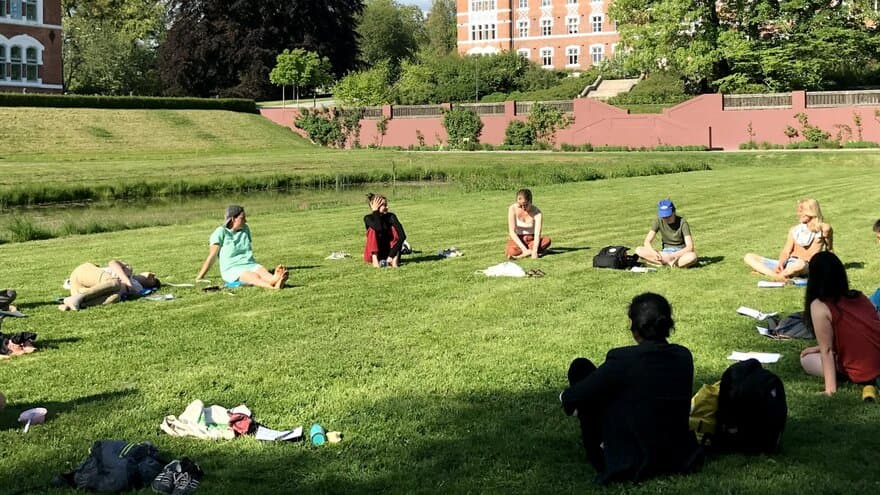About the project
Project summary
The primary goal of the project 'Student-driven Education (SDE) for Sustainability' is to investigate the current ecosystem at NMBU that enables student-driven education in terms of education for sustainability and suggest possible measures as to how this ecosystem can be improved. The project aims to contribute to knowledge about conditions to promote student-driven learning as integrated into a university structure. For this, the project will take into its focus the 'Systemic Design for Sustainability' (SDS) special syllabus course, which ran in June 2021 and which is an example of interdisciplinary SDE. To this date, interdisciplinary student-driven courses are a rarity at NMBU, and it is even more critical to understand, in the post-pandemic educational environments,
For students to be equipped to achieve sustainable development goals, our higher education institutions need to develop competencies for both understanding and addressing complex problems. Further, students themselves need to develop new skills due to their responsibilities in the learning process. This is why SDS is drawing upon the field of Systemic Design, and specifically, the sub-field of Systems Oriented Design (SOD) to guide students to address sustainable development challenges which by nature are complex.
More about the project
The project has five sub-goals related to the following fields:
- Student-driven Education: In recent years, we have seen a striking rise in the number and variety of activities within Student-driven Education all over the world. Research has documented various benefits around SDE for both students and teaching staff ranging from exercising agency and practicing leadership to contributing to the evolution of an institution into a place where education of sustainability is translated into a meaningful experience. This project aims to examine the experiences of planning, conducting and evaluating a course driven by students. The project aims at answering the question: What are the possibilities and the constraints in establishing a student-led course within a university structure?
- Education for Sustainability Transition: According to UNESCO's 2017 report on Education for implementing the SDGs, graduates need to build competencies in both systems thinking and integrated problem-solving. Systems oriented design (SOD) incorporates tools and methodology to build competencies to deal with uncertainty, understand systems, anticipate futures, and integrate problem-solving through designing for an alternative future. The project aims at answering the question: How does SDE build these competencies through applying the SOD methodology to real-life cases oriented towards sustainable development?
- Interdisciplinary learning: The project will specifically explore how the skill of interdisciplinarity and systems thinking are integrated into a student course, as these competencies are part of Competences for SDGs. Emphasis will be on the potential benefits of connecting to real-life situations, selected by the students themselves, as a vital part of the course. The project aims at answering the question: What are the possibilities and constraints when it comes to using a student-driven course as an arena for teachers / researchers from different disciplines to work together?
- Assessment as learning: SDS will employ unconventional forms of assessment. This project will consider the possibilities and potential challenges when students not only take part in the planning and conducting of the course, but also in the assessment. The project aims at answering the questions: What are the possibilities in transforming “assessment of learning” to “assessment as learning”? What are possibilities and constraints for both teaching staff and students when the students are active as evaluators in the assessment process?
- Role of Systemic Design: Systemic design is a negotiating process that seeks to guide students and practitioners to balance multiple perspectives from stakeholders, contextual knowledge and theoretical knowledge to shape solutions and interventions that are relevant to the context. This project will evaluate how the SOD tools, which originated in the Design field, can be applied by non-designers. The project aims at answering the questions: How can these tools be applied by interdisciplinary teacher / student teams? How does a systemic design approach equip students to feel empowered to contextually operationalize their disciplinary knowledge to tackle the SDGs?
Participants
Idil Akdos
Student
Reference group:
Sinduja Anantha Krishnan
Student
Nisha Jha
Student
